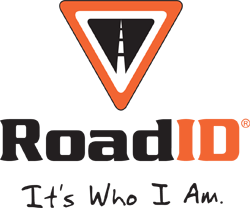|
We've discussed the importance of "Base Training", logging many miles to build up our aerobic system. Logging a lot of miles in the off-season is the surest way to get fast during the xc season!
BUT it's one thing to write down 50 miles a week or 200 miles a month, and an entirely different thing to actually "Git'er Done"! Putting in the miles is a challenge. It is physically demanding as well as mentally challenging, but the rewards are great if you can accomplish it. But be aware, lots of running will make you tired, and make you more susceptible to injury, so we have to be smart about putting in the miles. Here are some tips to help you through the drudgery of weeks of mileage training.
0 Comments
As the Styx song says - "Too much time on my hands"!
Being at home offers us more time to run, but also more opportunity for procrastination! Most runners are used to squeezing runs into our normally busy schedules. Now, rather than getting up early we sleep in. When we do get up in the morning we decide to wait until the weather is warmer, or until the wind stops blowing or some other reason. Then the afternoon comes and we get side tracked, or the rain comes, etc.... You know the drill! Here are tips for adjusting to our new norm. First have a plan! Know what your running plan is for each week. Start with a rough mileage goal, then plot out your days. Avoid running the same distance and pace each day. You need a long run, some easy days, maybe a tempo day and a day that you can work in some faster "pickups" or "Intervals". Also plan days off as needed! After you decide what type of run for each day, plan what time of the day you are going to run. Morning, noon or night! Once you make that decision, tell someone in your household so they can help you be accountable! Finally, decide where to run. A confirmed course gives you a defined start and finish point, so you are less likely to cut your run off early. Loops are sometimes mentally easier to complete as opposed to out and back courses. New locations are often mentally invigorating and make the time go by faster! A few minutes planning out your run week takes all the decision making out of the day to day so you can accomplish your goals! To quote Quenton Cassidy (Once a Runner) " These questions had been considered a long time ago, decisions were made, answers recorded, and the book closed. If it had to be re-opened every time the going got rough, he would spend more time rationalizing than training; his log would start to disclose embarrassing information, perhaps blank squares." Brooks Running CEO Jim Weber always likes to say "A run can flat-out change a day, a life, the world!" I agree 100%! No matter how grumpy I feel, I always feel much better, physically, mentally and emotionally after I finish a run!
With the start of the new year, I would like to offer some "old" advice, but it is always sound and relevant when it comes to getting in that run that will make you feel so much better! Getting out the door is the hardest part, once you do that the rest is easy. I always say to my runners "How do you eat an elephant? One bite at a time!" This is true with running. Getting out the door, a mile or two a day is the best start you can have. If you do it everyday good things will follow. Don't try to start with 10 miles if you are trying to get into shape. Develop the habit of a daily run first, the miles will come as you stick with it. 10 minutes of slow easy running beats hours of sitting on the coach thinking about it! Run Happy! Much has been written about the “rules” of running. Rules follow the perspective of “always do this” and “never do that”. I have a hard time following rules, but I do practice good running “habits”. The dictionary defines “habit” as “a behavior pattern acquired by frequent repetition or physiologic exposure that shows itself in regularity or increased facility of performance “. You can improve your running performance by practicing certain habits. These habits can include any number of running related activities. Doing something onetime does not have an effect, but repeating a positive activity several times it will become a habit and then will yield results. Develop enough habits and your running will show significant improvement (in other words, it gets easier and you get faster!) You need to repeat an activity several times over a three week period before it becomes a habit. Don’t try to adapt several activities at one time. Keep it simple, pick one activity, work on it for a week, then add another one. Repeat the activity the e a habit, then pick one or two more items to work on. Over time these things become habit and you become a faster runner! One of the most important habits you can develop is to plan and track your activity. Here are some pointers:
|
Archives
April 2023
Categories
All
|






 RSS Feed
RSS Feed

